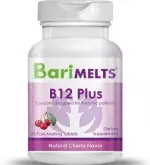It was late. Way late. So late, in fact, that I almost wondered why I was bothering with dinner at all. The day had been an absolute disaster and I’d have loved to sink into bed and pray for a better tomorrow, but unfortunately my two young children were hungry – and none too amused that it was 9 p.m. and they had not yet been fed dinner!
I decided to throw together something quick. Chili. The kids love chili, especially spicy chili. I figured this was perfect because it doesn’t take long to make, it produces lots of leftovers, and those leftovers taste better with each passing day.
So as soon as I got home from my class, I set to chopping onions and green peppers, browning ground turkey and draining cans of beans. It only took me about 30 minutes to make the chili and when it was done I called my children down to help set the table. I was determined we’d sit down to eat together.
My oldest daughter was the first downstairs so I set her to work. I pointed to the cabinet to ask her to hand me a…a…
What is that thing called? The thing. That you put soup in. And chili in. The thing???
Scared Straight
Yes, people. Standing there in my kitchen, rushed and stressed, I forgot the word for bowl.
Now if any of you have had a family member with dementia, you can understand why I was freaked out by this incident. But as I thought about it later that night, I realized that my memory had been fairly shoddy lately. I’d walk into a room and not remember why I was there. I’d put my keys down and just a minute later couldn’t find them. And heaven help me if I didn’t immediately put an event on a calendar. I missed quite a few because I failed to jot it down, then forgot it completely.
There are myriad medical conditions that can cause memory loss. When I went to the doctor to inquire about mine, the doctor ordered labs and when they came back I got a stern talking to. My doctor asked one simple question that “outed” me, “Have you been taking your b12 supplement regularly?”
I had not. At that time I took it by injection. I was instructed to do so monthly. One fact I’ve since learned is that the less often I am required to do something, the more likely I am to forget to do it. So I forgot my monthly injection – for many, many, many months.
(NOTE: This was a problem for me because, as a RNY patient, I no longer have the ability to properly absorb B12 in the body’s natural way – because that portion of my stomach is missing. So instead we need to take sublingual B12 which allows the B12 to be instantly absorbed into the bloodstream through the skin under your tongue.)
While my doctor was hesitant to deem that the only source of my short-term memory problems (after all I was also a working single mother and that carries a certain amount of stress which can also exacerbate short-term memory problems), the fact that mine was low at the time led us both to believe it was contributing to my problems. Again, my past freaked me out.
B12 is no joke!
My grandfather, before he died, suffered from dementia. At first he was thought to have developed Alzheimer’s Disease – a disorder that can only be 100% confirmed after death. As it turns out, he did not have Alzheimer’s Disease, but a very severe b12 deficiency. So hearing that I was low kind of scared me straight.
So what did I do? Well, several things:
- First, I asked if I could switch to a more regular regimen of taking b12. My doctor told me that I could switch to a daily sublingual tablet (one that melts under the tongue) instead of doing the monthly shot. (IMPORTANT: When figuring out what’s best for you, ALWAYS talk to your own doctor. My method and your method may not be the same!)
- I also took advantage of an app called “My Med Schedule” to remind me to take ALL my vitamins, not just b12. It was easy to set up and I get daily reminders for all my vitamin doses. I still am not perfect about vitamins all the time but at least the reminder is there and persistent.
- Lastly, I had to accept the fact that my short term memory problems might not go away, so I had to work with them and not against them. So I put my bottle of b12 tablets next to my toothbrush. I brush my teeth every day. When I brush my teeth, I see the bottle and I take my b12. I am the same way now with most things I want to remember. Put something I don’t want to forget next to something I can’t forget. I put my work ID next to my house keys, and my car keys are attached to my house keys, etc.
The Bottom Line
I share this with you all to encourage you to do whatever you need to do to stick to your vitamin regimen. In my case it vitamin B12 was low, but you can have many different kinds of deficiencies and they can cause many different kinds of problems. Here are a few things to think about:
- Vitamin deficiencies can take a while to show up in lab work. I get a lot of folks who are a year or so post-op who tout their good lab numbers despite not being vitamin compliant. Remember your body usually has a store of vitamins it can draw on when deficient. Unfortunately that means that in some cases when your lab work comes back with a deficiency the stuff has actually hit the fan.
- Some deficiencies can cause permanent damage. B12 deficiency is one of them. If you have severe memory loss, nerve damage, etc. as a result of this deficiency it can be irreparable and sometimes the best your medical team can do is help you manage.
- WLS patients have DIED because of vitamin deficiencies. I don’t say that to upset you but to let you know this IS important. Failing to take your vitamins doesn’t have the same immediate negative effects as, say, eating sugar and dumping but it can be so much more harmful!
So I hope sharing my story has inspired you all to figure out a good, convenient and, most of all, sustainable system for taking your vitamins. Because you have to do it – for the rest of your life. If you’re unsure what vitamins you should take, we’ve written quick guides for each surgery, based on the recommendations of the American Society of Metabolic & Bariatric Surgery (ASMBS).
If you’ve not had a conversation with your surgical practice about vitamins, make sure you talk about it the next time you are seen! And if you have any questions about my story, leave them in the comments below. I’m happy to answer.
 Bariatric Foodie Play with your food
Bariatric Foodie Play with your food




Thanks for this blog post and the challenge this week! Taking my vitamins regularly every single day is something I still struggle with 3 years out. So far my labs have always been good except for my Vitamin D, but I will go take my B12 right now!
Wow, can I relate to your story! I struggle so much with taking my vitamins. I took them religiously for the first year after my RNY. Now, 6 years out, my husband is on me constantly to take them. He can tell almost immediately when I've been slacking. I lose the ability to find my words and have the brain of a goldfish. Thanks for sharing your story and issuing a much needed challenge for me.
Thanks for this wonderful article! I too have suffered with memory loss, brain fog, and overall disorientation. My bones were aching like crazy, and feeling more broken than many elderly people, I thought I was on the fast train to the old folks home. After a stern talking to, I started back on my vitamins and I was like a whole new person. It also helped with my eating habits as I was no longer discouraged by my newfound lack of mental capacity and would not try to console myself by overeating and eating the wrong items. Pay close attention to B12, D, Calcium, and Iron. Ok just check everything and stay in balance!! Good luck to all.
My husband had RNY in 2005. He got lazy about his vitamins and stopped taking them all together. In 2012, he was carrying our 10 month old daughter across a beach and h r rated two discs. The first thing the neuro surgeon checked was his vitamin levels. He refused to do surgery on the nerve pain until my husband got his D3 back up.
My friends husband (RNY) was just hospitalized with high blood pressure, seizures and even stopped breathing, the official diagnosis? The “perfect storm” from low vitamin levels (esp iron).
Vitamins are no joke for bariatric patients!
Looking back now, I lost the job I loved because of b12 deficiency. Now I am sure to take it daily and get a monthly shot.
How much sublingual B12? I forget to go to my PCP for the monthly shots.
Hey Wendy. You’d need to consult with your surgeon or PCP for that information. It really is dependent on where your particular levels are.
Are there any vitamins or minerals we have to be careful about taking too much of?
Thank you
While this advice does NOT replace the advice of a dietician (and you should definitely work with one to determine the levels of nutrients YOU should take), I will say that there are vitamins that you can consume too much of. For example, vitamin D is toxic if taken in too high a concentration. That’s the one most commonly managed in bariatrics but there are others so make sure you talk with your dietician about your vitamin intake and always consult your doctor before changing vitamin dosage!